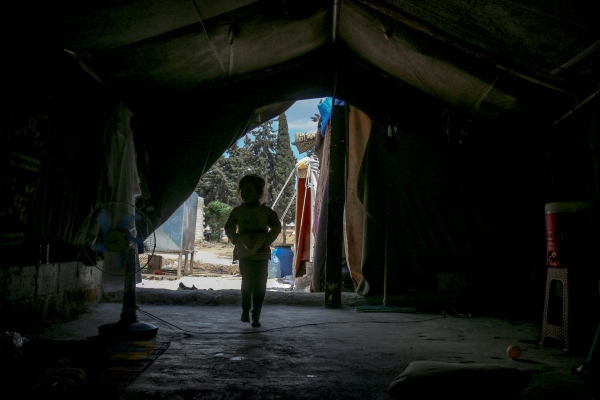The Report, developed for the Social Science in Humanitarian Action Platform (SSHAP) by the RECAP project of the London School of Hygiene & Tropical Medicine (led by Diane Duclos and Jennifer Palmer), considers the effects of the Covid-19 pandemic on the prevailing vulnerabilities of persons forcibly displaced by war (refugees, asylum seekers, internally displaced persons and stateless persons) across East Africa and the Middle East. In order to tackle these concerns, the authors propose greater inclusiveness to address the vulnerabilities of internally displaced persons during the Covid-19 emergency.
The preventive measures implemented by governments to respond to the pandemic negatively impacted displaced people who had to leave their home because of war. In addition to the health risks associated with the pandemic, this group faces problems exacerbated by these government measures - including further entrenching poverty, xenophobia and additional humanitarian protection problems.
Before turning to a more in-depth analysis of the impact of Covid-19, it is important to take into account the diversity of forced migration contexts. While these migratory flows vary regarding their location and destination, migrants’ accommodations, mostly occupied on a temporary basis, and the patterns of migration can also be differentiated by the nature and evolution of these displacements. There are numerous reasons leading people to relocate and also the ways differ through which people create a new sense of home in temporary and long-term displacement sites. Consequently, responses to Covid-19 should address the specific and different types of accommodations for displaced persons, these persons’ reasons for and modalities of travel, as well as their understanding of home in temporary and transient situations.
Since the outbreak of the pandemic, governments imposed restrictive measures throughout the Middle East and East Africa at a relatively early stage, causing many difficulties to daily life. In this context characterised by a low number of Covid-19 cases but a high intensity of preventive measures, the main vulnerabilities encountered have been due to a combination of measures restricting mobility and commercial activities. In this situation, most humanitarian responses were inadequate to address both the medical needs associated with Covid-19 and the vulnerabilities associated with government response measures taken in areas where humanitarian programmes operate.
Apart from the threats of Covid-19 medical complications, there are other problems related to the pandemic that may indirectly affect the lives of displaced persons, such as their difficulties to reach health facilities or to receive humanitarian assistance, which further increased gender-based violence or mental health implications. In addition, Covid-19 caused an acute fear of contagion and created a stigma around migration that increased the marginalisation of already vulnerable groups.
Displaced populations, humanitarian actors and governments are stepping up their responses to Covid-19 also in the context of forced migration in the Middle East and East Africa. Importantly, many of these responses have built on existing social and aid distribution structures at the local level, particularly in regard to displaced persons. To address still existing limitations of international aid and host government support systems, refugee-led organisations played an important role in solidarity networks.
The Report concludes by recommending reducing the vulnerabilities created by Covid-19, inter alia through the promotion of holistic public health responses to address multiple vulnerabilities linked to Covid-19 e.g. by avoiding a complete lockdown to minimise economic hardships and violence. It also suggests to use research to gain a better understanding of local social responses to the epidemic. In this regard, taking a whole-of-society approach to Covid-19 would ensure that multiple sectors and stakeholders are involved in the response and that different perspectives on displacement are applied. The Report concludes by stressing the importance to continue supporting organisations led by displaced people, as well as supporting local efforts to achieve peace and ceasefires.
To learn more, please read:
Author: Carla Pintor







